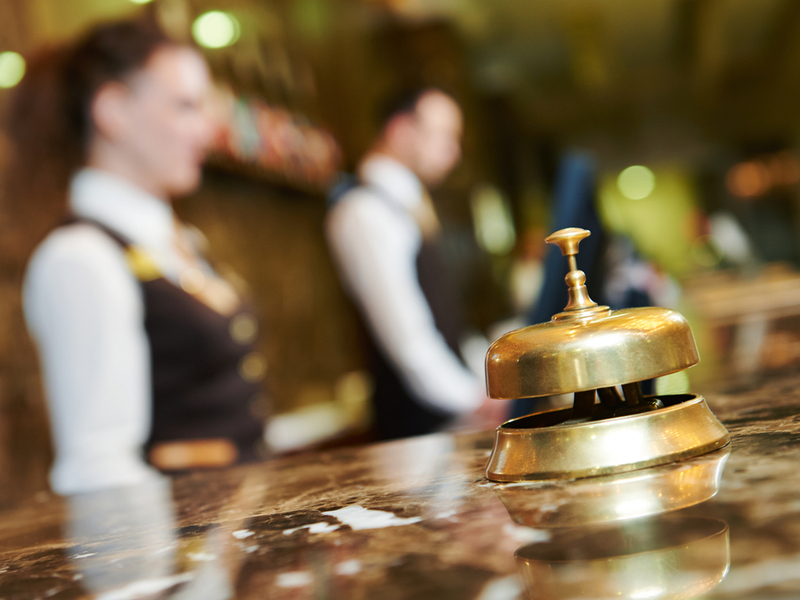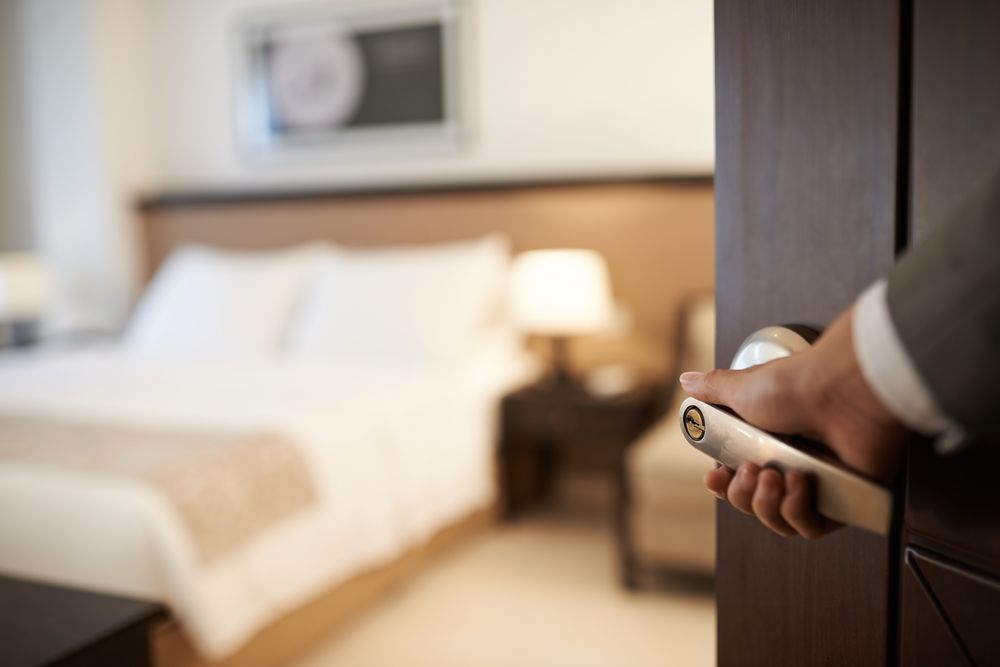The Irish hotels sector has very much left the pandemic in the rear-view mirror but maintaining growth in the years ahead will be challenging, the 7th annual Bank of Ireland Hotels Conference heard this week.
“You’ll hear me and the speakers reference 2019 a lot. And it’s not that I’m obsessed with it or anything – it’s not like a bad break-up,” joked Bank of Ireland’s Hospitality Sector head Gerardo Larios Rizo as he referenced a halcyon year before the pandemic shuttered an entire industry.
His fellow speaker Jenny De Saulles from Failte Ireland echoed this sentiment, pointing out that 2019 had been such a high point year for the industry that it would be impossible not to reference.
“Over the last few years we’ve seen hotels investing in upgrading their product. This has led to quite a few hotels reclassifying this year”
With the pandemic behind it, the industry is currently in rude health, the mood is buoyant and new brands are entering the market, but economic storm clouds may be gathering. And, if the industry wishes to enjoy growth in the future, it needs to lay the groundwork today.
Addressing the event Larios Rizo described the market in Ireland as “quite a benevolent environment” buoyed by strong domestic demand and a rebound in overseas visitors.
Citing Central Statistics Office data he said that demand for the first quarter of 2023 saw the domestic market for hospitality grow 14% combined with a 19% increase in spend.
Rooms with a view to growth
In essence, the industry has recovered to be exactly where it was before the pandemic and hence why 2019 is such a benchmark.
Larios Rizo warned, however, that very little has changed when it comes to room supply outside of Dublin, despite more brands coming into the country.
The silver lining, he urged, is that strong occupancy levels are being driven not solely by demand but by greater innovation among hotel providers. “Over the last few years we’ve seen quite a few hotels investing in upgrading their product. This has led to quite a few hotels reclassifying this year,” he said referring to hotels such as Rackett Hall in Roscrea upgrading from 2-star to 4-star businesses and the Morrison Hotel in Dublin becoming a 5-star hotel.
“I’m not blind to the challenges facing the sector. A lot of the bars and restaurants in hotels have mitigated the increasing cost base by adjusting their prices.
“The increase in hospitality VAT as well as increases in average minimum wage is also going to have negative implications that could threaten the viability of some businesses.”
Gavin Kelly, CEO of Bank of Ireland’s Corporate & Markets division described the gathering of Ireland’s hoteliers at the Intercontinental in Dublin as “very much an all-island working group.”
He said: “We know that particularly for tourism and hospitality that it is critical in how we market the country for sales. And the hospitality sector is not only a critical component of the economy, providing employment in locations across the country, but it also plays a significant role in our wellbeing as a support to the country’s rest and relaxation.”
He said he was proud of Bank of Ireland’s support of businesses in the sector investing acquiring new hotels and refurbishing and upgrading existing properties.
But Kelly described the mood of those he had spoken to across the industry and in business as “cautiously optimistic” for the future in the face of inflation and signs of slowing growth.
“We are very aware of the cost of living crisis that’s out there and we are also aware of the challenges businesses in terms of managing costs.
“So while I think it is important to be optimistic and stay optimistic, given some of the number we are seeing we also need to support you and help you as you transition around some of the challenges so that you can exploit opportunities in the years ahead.”
Jenny De Saulles from Failte Ireland said that the hotel sector’s recovery from the pandemic is complete. Quoting CSO data inbound travel has started to recover with more than 2m visitors last year with the average length of stay at around nine nights. “That represents a total expenditure of €2.2bn, excluding air fares.”
She said that domestically trips by Irish-based people were up 14% in 2022. In Q1 of this year she said the industry saw an increase of 11% in overnight trips.
“The domestic market has bounced back. It has reached a new peak in terms of economic recovery.”
But with more moderate growth expected in the domestic economy, allied with peak employment and the fact that Ireland has the second highest minimum wages in the EU, there are challenges ahead.
The silver lining is that quality experiences are driving return visits. “Overseas visitors are coming here but they’re not seeing us as a cheap destination. But they do see us as a destination that offers value and is worth coming back to.”
On the environmental and sustainability front, De Saulles said the industry is doing its part but hotel owners need to be aware that EU mandatory sustainability reporting will impact the industry by 2025 and they will need to be ready.
De Saulles said that the hotels industry is increasingly focusing on career development of staff and allied with pay increases and more flexible hours the industry is tackling the recruitment challenge.
“Measures taken by employers and the supports the sector is providing in Ireland are having an overall positive effect on recruitment and retention difficulties are subsiding. But we still have significant challenges that remain and need to be addressed.”
Main image at top: Gerardo Larios Rizo, head of Hospitality Sector, Bank of Ireland





